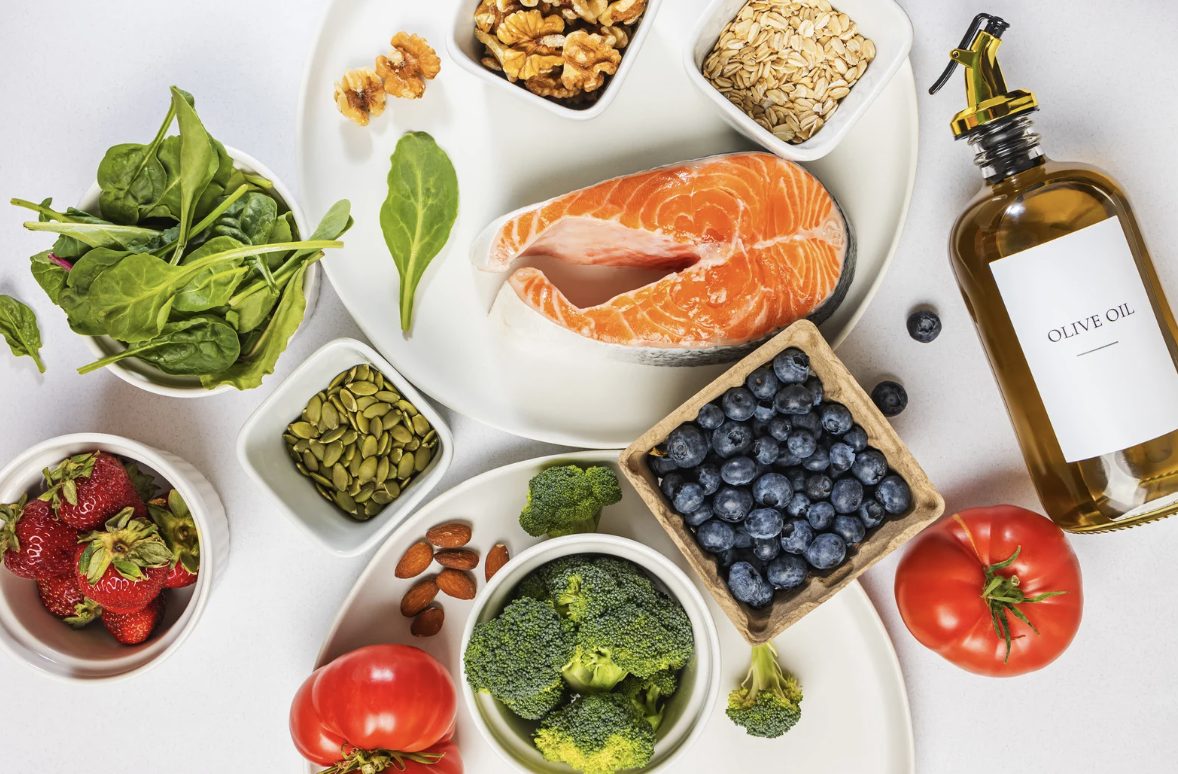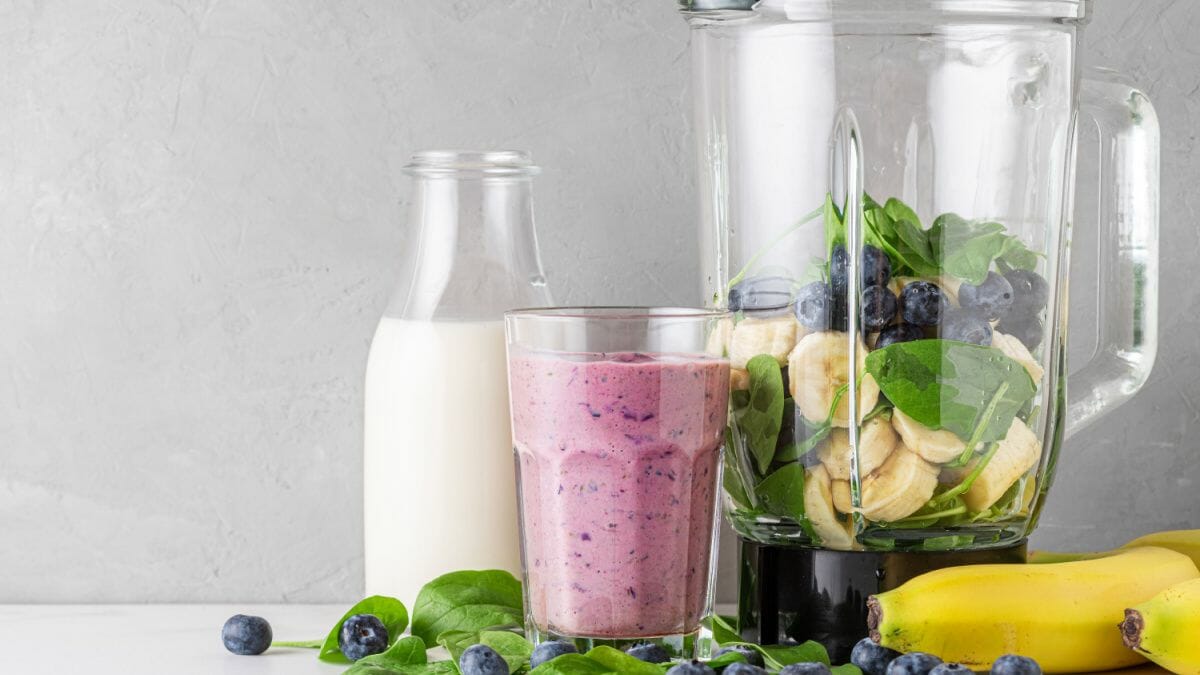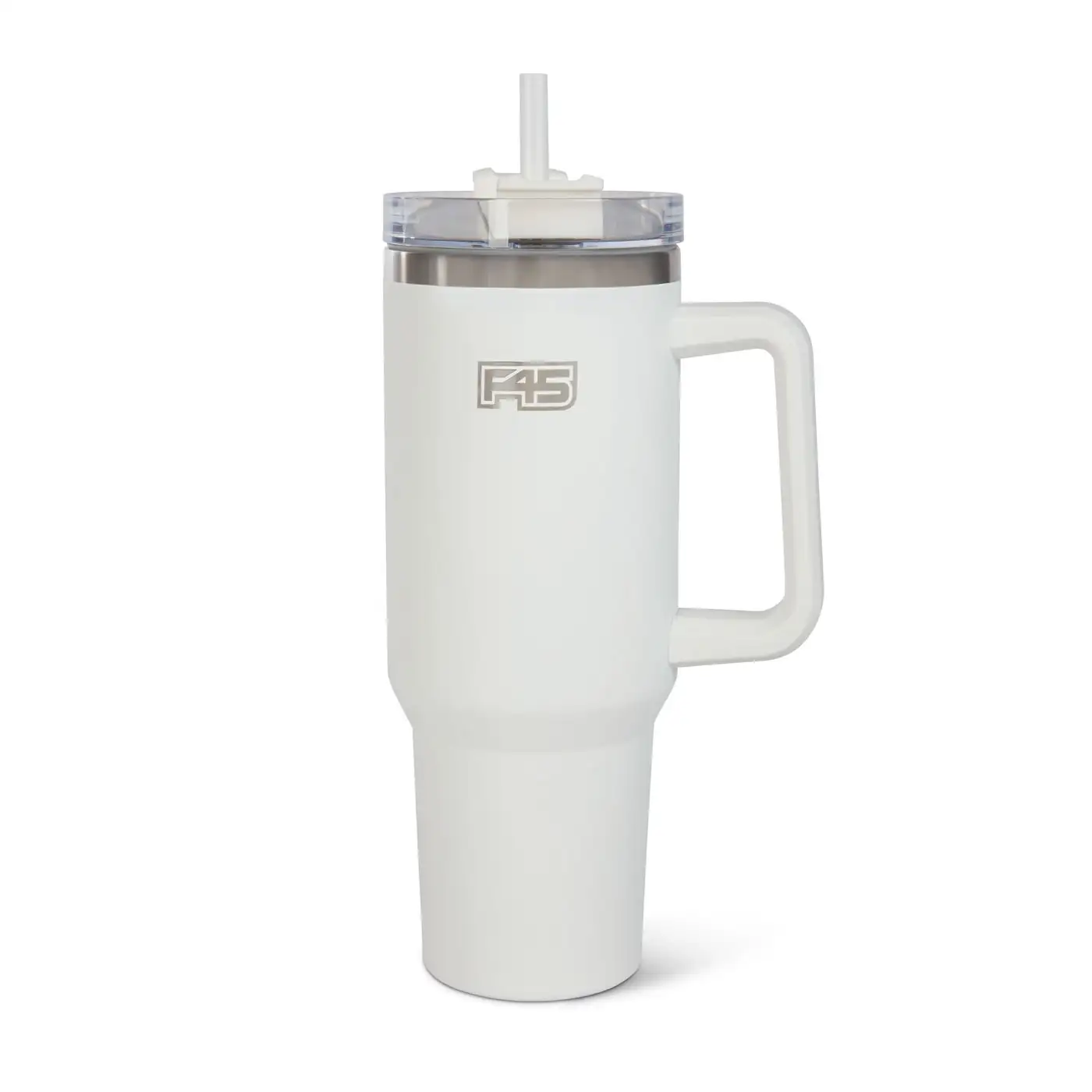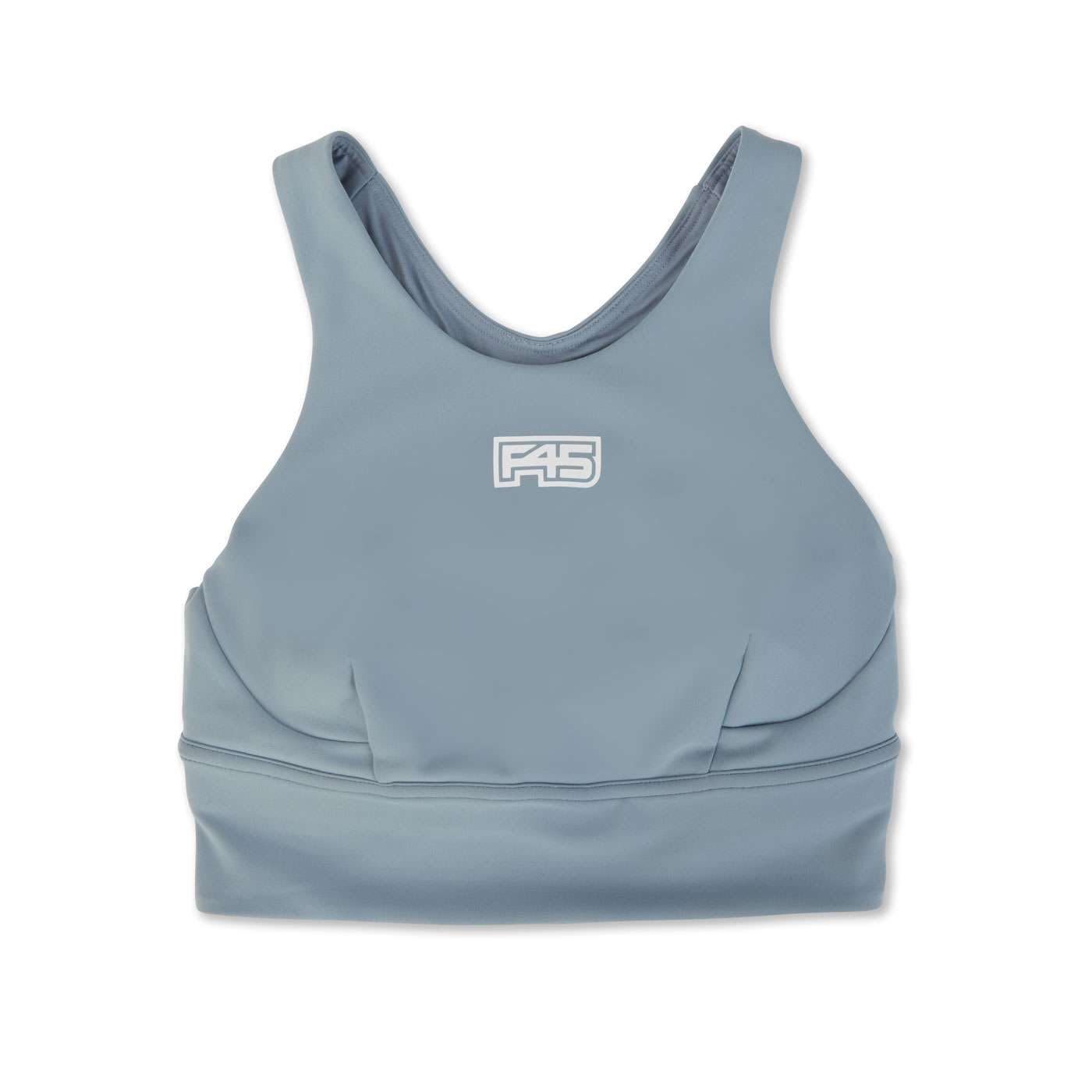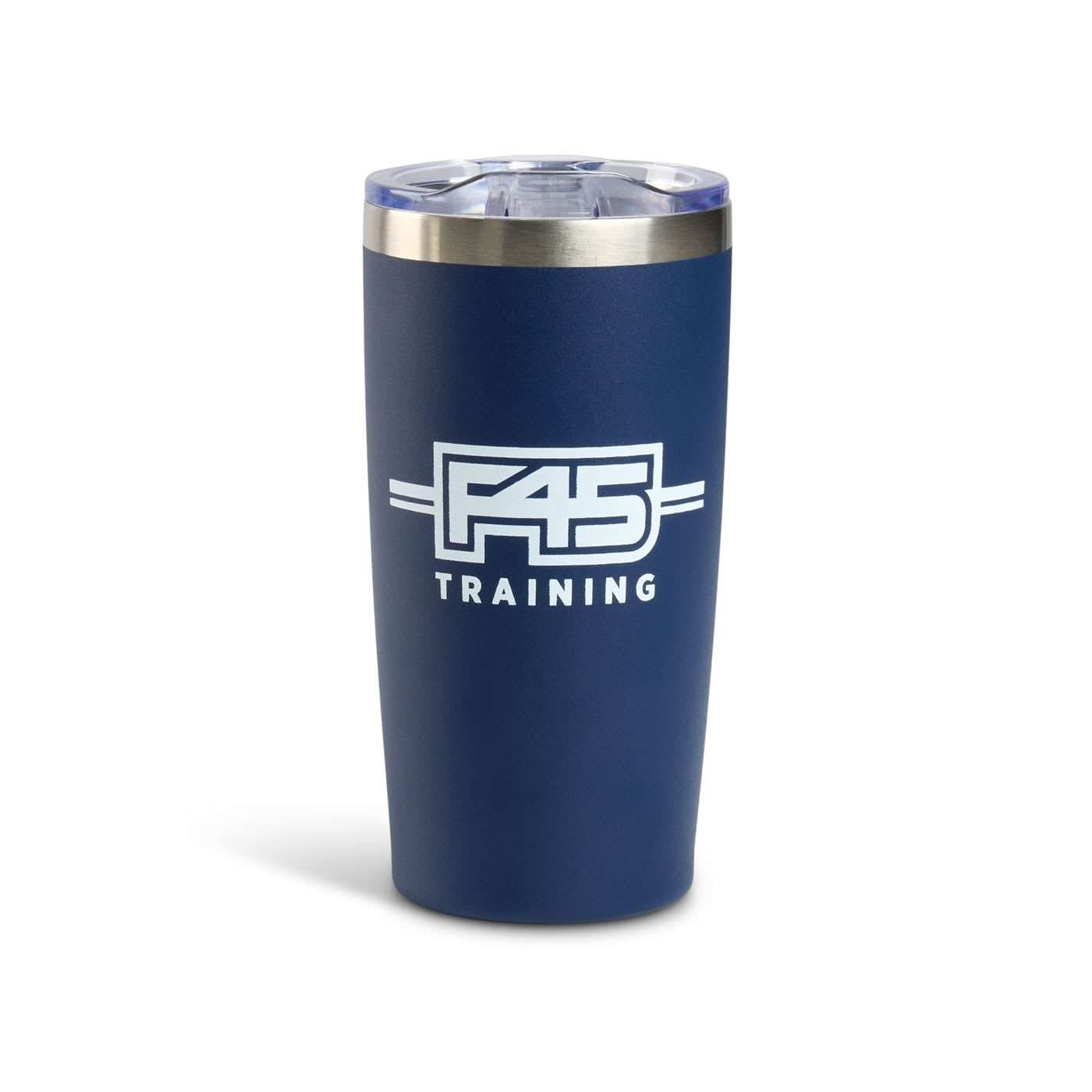August 30 2023 | Ashleigh Kidd, RD, LDN
Hey team! Back here again to separate fact from fiction when it comes to nutrition. Want your burning questions answered? Head to our IG (@f45Training) every Wednesday to play Fact or Fiction and submit your nutrition questions to be answered by your Challenge Dietitian!
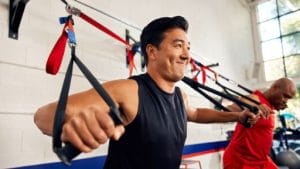
Alright, let’s play!
Fact or Fiction: If I miss workouts I will start gaining weight i’ve lost
It’s not that simple!
When it comes to weight gain, we must be in a caloric surplus (consuming more energy than we expend). Could you slowly start to re-gain weight if you consistently skip workouts and therefore expend less calories over time? It’s possible (this also depends on your caloric intake).
BUT please remember that it is essential to your physical and mental health to have rest days, and it’s also completely normal to have days from time to time where we decide to skip a workout for various reasons.
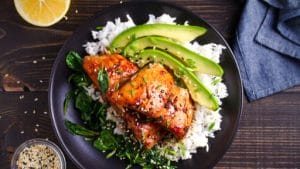
Fact or Fiction: Protein needs for weight loss are pretty much the same for everyone
Fiction!
10-35% of your daily calories should come from protein. This sounds like a wide range, and well…it is! Nutrition isn’t one size fits all and everyone has different protein needs, typically determined by weight, activity level, types of workouts, and medical history.
The RDA (Recommended Dietary Allowance) for protein is 0.8-1.0g/kg of bodyweight for the average adult. However, the Academy of Dietetics and Nutrition, in agreeance with the American College of Sports Medicine, recommends 1.2-2.0g/kg of body weight for active adults to support muscle growth and repair. For particularly high intensity exercise (i.e. athletes training 2+ times a day several days per week) may need up to 2.4g/kg bodyweight.
It’s important to reiterate how unique protein needs are and If you’re not sure how to determine your protein needs or want to make sure you’re consuming enough, reach out to your medical provider.
When in doubt, remember the balanced plate model and aim to include protein on ~1/4 of your plate at each meal (about 20-40g protein). Also try to include protein at snacks and pair it with a carbohydrate source (i.e. whole wheat crackers with sliced turkey).

Fact or Fiction: Pre-workout and post-workout protein shakes aid in muscle gain
There’s more to the story!
Protein intake is important for muscle growth, and if you’re eating a varied and balanced diet, you can prioritize your protein goals through food alone! That being said, protein supplements like protein powder can be a great (and convenient) tool to assist with overall protein intake, but just know they aren’t always necessary.
Pre-Workout supplements can contain a mix of (but not limited to) caffeine, beta-alanine, BCAA’s, and creatine. This combination may enhance focus, energy levels, stamina, and muscle endurance & repair, according to some studies. Some people swear by using pre-workout supplements while others choose to stay away. Ultimately it’s a personal decision that you should make with your healthcare provider as there are potential risks to taking pre-workout including: dehydration, increased risk of injury, and toxicity in extreme cases when consumed in high doses.

Fact or Fiction: Counting calories is the only way to lose weight
Fiction!
While you do need to be in a caloric deficit to lose weight, tracking what you eat is just an optional tool that may be suitable for some, and not for others. In fact, building sustainable habits will benefit you more in the long term than tracking alone (even if it’s a bit of a slower process than the typical quick fixes we often see advertised). Below i’ve outlined some tips on losing fat and improving your nutrition without tracking your calories:
- Choose minimally processed foods most of the time (notice I didn’t say eliminate all processed foods, learn more here)
- When it comes to beverages, choose water most often
- Track behaviors (i.e. goal setting, vegetable/fruit intake, eating balanced meals)
- Prioritize protein (aim for 20-40g protein at each meal)
- Make sure to include your favorite foods! Satisfaction is KEY to building sustainable nutrition habits
- Don’t skip meals (coffee doesn’t count as breakfast friends)
- Make most of your meals at home. Now I’m not telling you to skip out on girls night, date night, etc. because these are important too! But, when possible, try to plan out your meals and grocery shop for the week ahead of time so you’re prepared
- Increase fruit and veggie consumption
- Tune into your hunger/fullness cues (this takes practice! start with this hunger/fullness scale)
- Aim to include protein, fat, carbs & fiber at most meals
- Practice mindful eating
- Avoid the all or nothing mindset when it comes to your nutrition, exercise, and overall health (improving your relationship with food takes time and support, show yourself Grace).
- Prioritize quality sleep (maybe this starts with minimizing screen time before bed)
- Don’t wait until your famished to eat (see hunger scale above)
- Reduce sedentary time at home or work by taking breaks to stand or walk
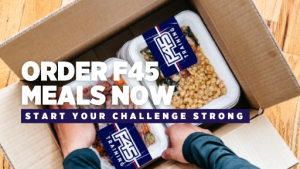
Have you ordered your meals for the remainder of Challenge? Check your area here for suppliers here.
For additional nutrition and wellness support, you can always check out F45 Articles for tips on how to improve your nutrition and relationship with food.
